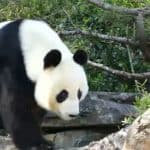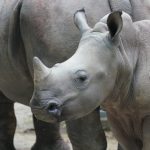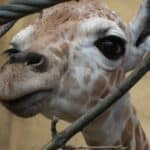London Zoo scientists have been working in Antarctica for several years now, with a view to establishing long-term penguin conservation initiatives, backed by novel and infomative science. This year, the field team consists of Tom, Gemma and I (Ben Collen) – here are Tom and Ben in nonchalant poses next to the ZSL main offices, looking the part in the snow. With considerably more glamour and youthful keenness, Gemma appears in a slightly more tropical location.
Tom will spend the first couple of months of the 2011-2012 field season on South Georgia. Here, he will be completing a full survey of the South Georgia penguin colonies, and be working on a rat control project with the South Georgia Government. With limited contact, and the prospect of hiking between survey sites unsupported, it should be an amazing journey around this spectacular sub-Antarctic island.
At the end of January, I will join Tom in Argentina, where we will meet up with our ship, the MV Akademik Sergey Vavliov, once again hitchhiking with Exodus. From Ushuaia we will sail south across the infamous Drake Passage, to the South Shetland Islands. From there we will continue down the coast of the Antarctic Peninsula, locating new sites for penguin monitoring along the way.
We have two jobs on this trip; firstly to expand last year’s camera monitoring project which is investigating the impacts of a changing climate on penguin populations. Secondly, we will be sampling penguin feathers in order to get a view of the population structure of colonies. Combined, the findings of these two research projects should help protect penguins in the long term
Gemma will join in late February in order to collect information for her MRes project at the University of Southampton. Her research will make use of conservation genetics to assess the potential impacts of climate change on penguin populations. By using both historical and modern-day samples, she will look at changes in the genetic diversity of Adelie penguins to investigate whether recent declines have affected the genetic health of the population.









